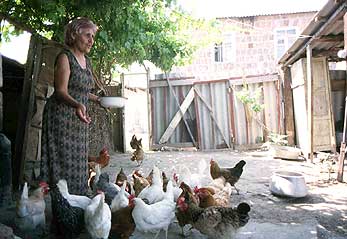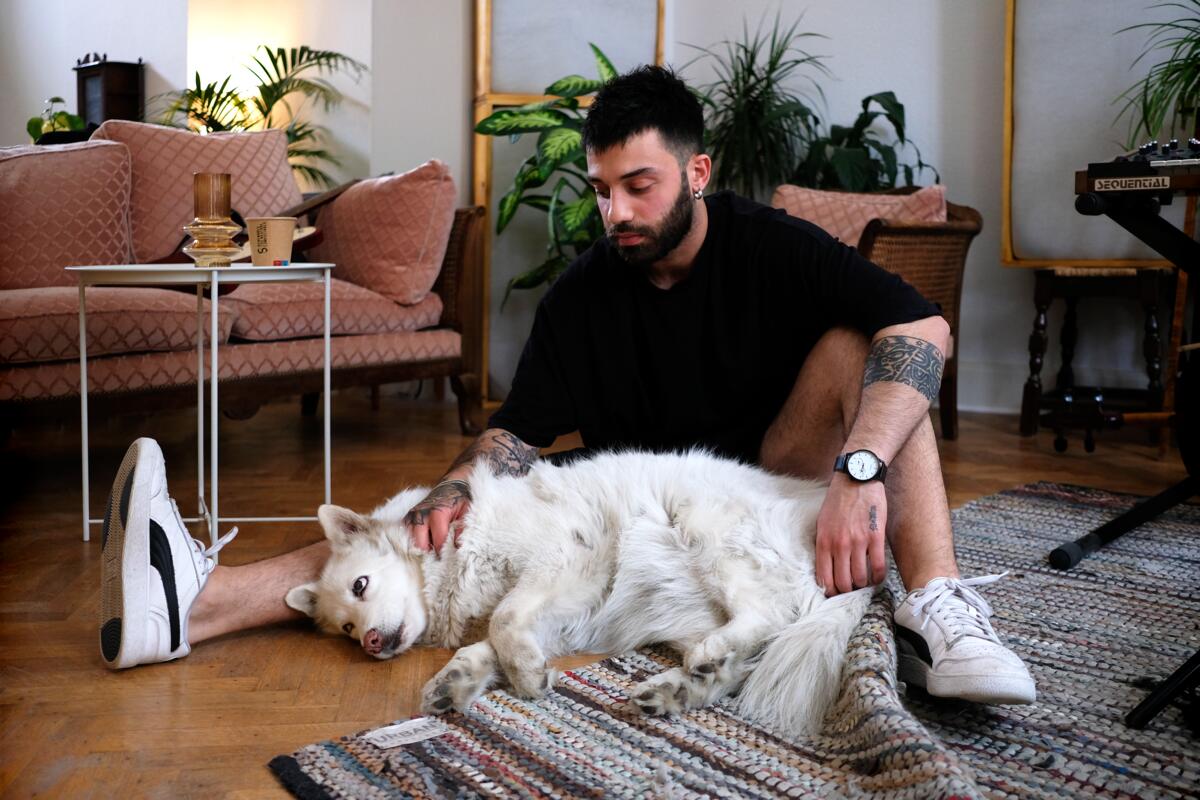Feature: Ethnic Armenian refugees face challenge of integration
Feature: Ethnic Armenian refugees face challenge of integration

YEREVAN, Armenia (UNHCR) - "I am glad I can now shake off this 'refugee' label, although I understand that the passport I've just got won't make my life any easier," says 41-year-old Mariam Petrosyan as she happily waves her brand-new Armenian passport.
Petrosyan, like the majority of refugees currently living in Armenia, came from Azerbaijan after conflict broke out between the two countries over the disputed territory of Nagorno Karabakh in 1988. The fighting displaced more than 1 million people on both sides, including some 360,000 ethnic Armenians who left Azerbaijan for Armenia.
A cease-fire agreement has been in place since 1994, but with no real solution in sight for the conflict, there are few prospects for the ethnic Armenian refugees to return to Azerbaijan. In response to this, the government of Armenia has adopted a policy of local integration towards this group of refugees.
"The policy of integration of refugees from Azerbaijan is a priority of our government," says Gagik Yeganyan, Head of Armenia's Department for Migration and Refugees (DMR). "UNHCR has been assisting us in implementing various programmes to help refugees integrate."
Since 1998, DMR, with assistance from the UN refugee agency, has been facilitating the acquisition of Armenian citizenship by refugees from Azerbaijan. So far, more than 50,000, or 21 percent, of the 245,106 refugees registered in the country have opted for citizenship.
Others are more cynical. "I do not want to become an Armenian citizen," says Svetlana Hakopyan, a mother of three. "What do I get for that? Employment? An apartment? Nothing." Like many ethnic Armenians who used to be urban residents in Azerbaijan, she has been settled in a rural area and has had to cope with difficulties of rural life.
"I used to work at an oil refinery in Baku, but here I cannot use any of my skills. In the beginning I did not even know how to cultivate land, but I had to learn a lot to feed my children, because you cannot go on without farming in a village, where there are no jobs at all," she says.
Indeed, for many refugees from Azerbaijan, integrating in Armenia has become a huge challenge. They associate their successful integration not with acquiring Armenian citizenship, but with getting jobs and permanent housing.
"The refugees from Azerbaijan are well integrated from the legal point of view, meaning that they are accorded nearly the same rights as the local population," explains Lloyd Dakin, UNHCR Representative in Armenia. "However, sometimes the acquisition of citizenship is confused with integration. The latter is a long and complex process which requires implementation of various social and economic development programmes."
Recent surveys conducted by international and local organisations place refugees in the ranks of the poorest in Armenian society.
UNHCR has been carrying out a number of projects to help these refugees integrate in the country, including providing permanent housing, allocating micro-credits for income generation and basic social and medical assistance. The agency is also actively engaged in advocating and lobbying for the inclusion of refugees as a particularly vulnerable group in national development plans and programmes such as the Poverty Reduction Strategy.
"The problems that impede successful integration of Armenian refugees from Azerbaijan can be easily divided into two groups - socio-economic and cultural," says the Director of the Sakharov Armenian Human Rights Centre, Levon Nersisyan, who has been working with refugees for many years.
According to him, the socio-economic problems mainly revolve around the provision of permanent housing for refugees, employment, and access to social welfare and health care. These are also common problems among the local population that need to be addressed through comprehensive national strategies and programmes.

But refugees also face cultural obstacles to integration. Those from Azerbaijan are mostly Russian speakers and do not have a good command of Armenian, which further narrows their employment opportunities as they cannot compete with the local population on the domestic labour market and, thus, may qualify only for low-paying jobs.
Another factor that slows down the integration process is that the majority of refugees are older persons who rely mainly on low national social benefits, and who have long depended on the assistance of UNHCR and other international organisations to survive.
"We are providing basic social and medical assistance to elderly refugees living in communal centres in Yerevan and other regions of Armenia," says Hripsimeh Kirakosyan, President of Mission Armenia, UNHCR's implementing partner. "It's thanks to UNHCR's assistance that these people are surviving."
Despite all the difficulties, many ethnic Armenian refugees have managed to start a new life in what they call their "historic homeland." The success of their integration has mostly hinged on their desire to stay in Armenia, where they consider themselves safe.
"You cannot become a full member of society or integrate properly if you do nothing and wait for somebody else to do the job for you," says Anna Ghukasyan, a former refugee and now leader of Agrarians, a non-governmental organisation that assists refugees in rural areas.
She adds, "They should understand that the Soviet era has passed and there is no way back. That in order to integrate you should make an effort, you should have a willingness to do so."
While many refugees are still struggling to break out of poverty, their desire to work for a better future for their children remains strong.
"We should not allow the status of 'refugee' to become our lifestyle and be passed on as a heritage to our future generations," says 37-year-old Artur Gevorkov while playing with his baby girl. "I do not want my children to be called 'refugees' and feel different from or inferior to their peers. Yes, we were once refugees, but now we are citizens and Armenia is our new homeland."
By Emil Sahakyan
UNHCR Armenia









